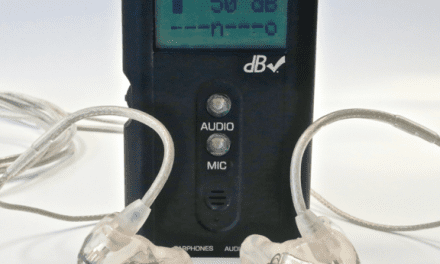Summary: New research reveals that three in five U.K. adults struggle to hear conversations in noisy environments, a phenomenon known as the “cocktail party effect.”
Takeaways
- Approximately 62% of surveyed adults in the report occasional difficulty hearing conversations in noisy settings, with 8% always struggling.
- Nearly half of adults in Britain have never had their hearing checked, highlighting a significant gap compared to regular eye and dental check-ups.
- Hearing loss affects 12 million adults in the U.K., causing social and cognitive strain, yet many delay seeking help, underscoring the need for routine hearing assessments.
New research investigating the hearing health of Britain has discovered that three in five adults struggle to hear conversations in noisy places; a phenomenon known as the “cocktail party effect.”
The “cocktail party effect” refers to our ability to focus on speech of interest in the presence of background noise, for example in noisy social settings.
Hearing Loss in Adults
The research, carried out by hearing training experts Eargym, surveyed 2,001 U.K. adults to understand how hearing loss shows up in our daily lives, as well as the steps Brits take to protect their hearing.
When asked whether or not they struggle to hear conversations when in noisy environments like busy cafes or pubs, three in five respondents (62%) said they “sometimes” or “occasionally” struggle to hear the person they’re speaking to over the background noise.
Almost one in 10 (8%) of the adults surveyed said they “always” struggle to hearwhat somebody is saying to them when there is background noise, whilst just a quarter (25%) of Brits said they “never” struggle to hear speech in noise.
Hearing loss affects 12 million adults in the UK. One of the early signs of hearing loss is a difficulty hearing other people clearly and needing people to repeat themselves. Some individuals with hearing loss will feel fatigued or stressed after socialising due to the cognitive effort required to keep up with conversations.
Further reading: Navigating Communication in a Noisy World
Importance of Hearing Checks
Despite the majority of adults surveyed having struggled to hear speech in noisy places at least some of the time, almost half (43%) admitted they’d never had a hearing check in their adult life.
This figure remained consistent across age groups, with 40% of 18-24 year olds and 44% of over-55’s saying they’d never had their hearing tested as adults.
A quarter (26%) of respondents said they’d had their hearing checked one or two times since turning 18, whilst just 1% of respondents had had their hearing checked ten times or more.
This is in stark contrast to the popularity of eye and dental checks. Respondents were four times more likely to have never had a hearing test than an eye test, with just 8% of the adults surveyed saying they’d never been to the opticians since turning 18. Almost a quarter (23%) of those surveyed said they’d had between six and nine eye tests, with 12% visiting the opticians 10 or more times.
Dental checks were just as popular, with more than a third (35%) of adults visiting the dentist for a check-up or treatment six times or more. Nearly 1 in 3 (30%) of those surveyed couldn’t remember how often they’d been to the dentist, which suggests visits are frequent enough as to make it difficult to keep track.
The findings suggest that despite the social impact of hearing loss, it is rare for U.K. adults to get their hearing checked regularly, with hearing tests yet to become as routine as dental and eye check-ups.“The cocktail party effect might sound like a bit of fun, but if you’re frequently struggling to hear conversations in pubs and noisy places, it might not just be a result of too many cocktails. When adults notice changes in their hearing they often wait years before seeking help, when they could have been protecting and prolonging their hearing that entire time,” says Amanda Philpott, hearing health expert and CEO at Eargym. “If there’s one thing I would like people to take from this survey, it’s that we should all be checking our hearing just as often as we’re checking our teeth and eyes.
Photo: Dreamstime




